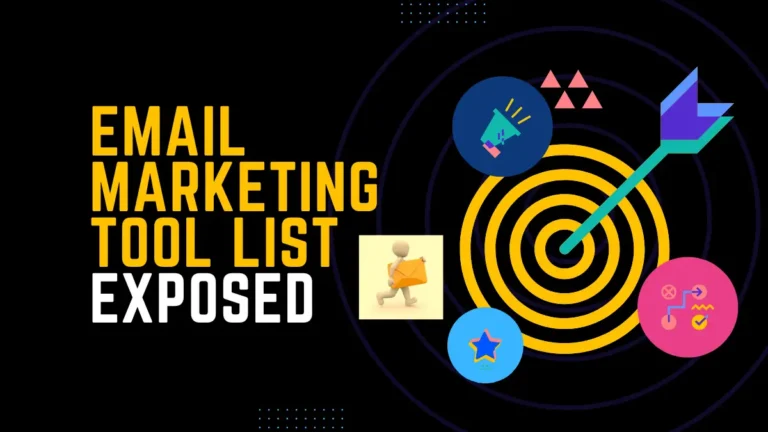In today’s highly competitive digital landscape, businesses are constantly seeking innovative ways to enhance their online visibility and drive organic traffic. While quality content, responsive design, and technical SEO form the foundation of a successful website, there’s one powerful tool that many overlook: schema markup.
Schema markup has evolved significantly and remains one of the most effective ways to help search engines understand your content better, leading to enhanced search results and improved click-through rates. This comprehensive guide covers everything you need to know about schema markup in 2025.
What is Schema Markup?
Schema markup is structured data code that you add to your website’s HTML to help search engines understand the context and meaning of your content. Think of it as providing a detailed description or label for every piece of content on your website, whether it’s a product, service, article, or business information.
When implemented correctly, schema markup enables search engines to create rich snippets—enhanced search results that display additional information beyond the standard title, URL, and meta description. These rich results can include ratings, prices, availability, images, and other relevant details that make your listing stand out in search results.
The Three Primary Schema Formats
Schema markup can be implemented using three main formats:
JSON-LD (JavaScript Object Notation for Linked Data) – Google’s preferred format due to its simplicity and ease of implementation. It can be added to the head section of your HTML without affecting the visible content.
Microdata – HTML attributes that are embedded directly into your existing HTML content. While effective, it can make your code more complex to manage.
RDFa (Resource Description Framework in Attributes) – Similar to microdata but with different syntax. Less commonly used than the other two formats.
Essential Schema Types for 2025
The schema.org vocabulary includes hundreds of different schema types, but certain types have proven most valuable for SEO and user experience:
Core Business Schema Types
Organization Schema – Essential for establishing your business identity, including name, logo, contact information, and social media profiles.
Local Business Schema – Critical for businesses with physical locations, including opening hours, address, phone number, and service areas.
Website Schema – Helps search engines understand your site structure and navigation.
Content-Focused Schema Types
Article Schema – Perfect for blog posts, news articles, and other editorial content. Includes author information, publication date, and article structure.
FAQ Schema – Displays frequently asked questions directly in search results, increasing visibility and click-through rates.
How-to Schema – Ideal for tutorial content, providing step-by-step instructions in search results.
Video Schema – Essential for video content, enabling rich snippets with thumbnails, duration, and upload dates.
E-commerce Schema Types
Product Schema – Includes pricing, availability, reviews, and product specifications.
Review Schema – Displays star ratings and review information in search results.
Offer Schema – Details about pricing, availability, and purchase options.
Event and Service Schema Types
Event Schema – Perfect for concerts, webinars, conferences, and other events with date, time, and location information.
Service Schema – Describes services offered, including service areas and pricing information.
Why Schema Markup is Crucial in 2025
Schema markup has become increasingly important as search engines prioritize user experience and attempt to provide more relevant, informative search results. Here’s why it matters:
Enhanced Search Visibility
Rich snippets created by schema markup make your listings more prominent and informative in search results. This increased visibility often leads to higher click-through rates, even when you’re not ranking in the top position.
Voice Search Optimization
With the growing prevalence of voice search, schema markup helps search engines better understand and extract information from your content to answer voice queries accurately.
Mobile Search Enhancement
As mobile searches continue to dominate, rich snippets become even more valuable on smaller screens where space is limited and users need quick, relevant information.
Competitive Advantage
While schema markup adoption has increased, many websites still don’t implement it properly. Correct implementation gives you a significant advantage over competitors who neglect structured data.
AI and Machine Learning Integration
Search engines increasingly use AI to understand content context. Schema markup provides the structured data that these systems need to accurately interpret and categorize your content.
Understanding the Schema Ecosystem
It’s important to distinguish between three related but different concepts:
Structured Data refers to any organized format that helps search engines understand content. This includes schema markup, Open Graph tags for social media, and other structured formats.
Schema.org is the collaborative vocabulary created by Google, Microsoft, Yahoo, and Yandex. It provides the standardized terms and properties used in schema markup.
Rich Snippets are the enhanced search results that appear when search engines successfully interpret your structured data. These can include star ratings, pricing, images, and other relevant information.
How to Implement Schema Markup in 2025
Method 1: JSON-LD Implementation (Recommended)
JSON-LD is the preferred method because it’s clean, doesn’t interfere with your HTML, and is easier to maintain. Here’s a basic example for a local business:
{
"@context": "https://schema.org",
"@type": "LocalBusiness",
"name": "Your Business Name",
"address": {
"@type": "PostalAddress",
"streetAddress": "123 Main Street",
"addressLocality": "Your City",
"addressRegion": "Your State",
"postalCode": "12345",
"addressCountry": "US"
},
"telephone": "+1-555-123-4567",
"openingHours": "Mo,Tu,We,Th,Fr 09:00-17:00"
}
Method 2: WordPress Plugins
Several excellent WordPress plugins can handle schema markup automatically:
RankMath – Comprehensive SEO plugin with advanced schema features Yoast SEO – Popular SEO plugin with built-in schema support Schema Pro – Dedicated schema markup plugin with extensive options All in One Schema.org Rich Snippets – Free plugin for basic schema implementation
Method 3: Google Tag Manager
For websites using Google Tag Manager, you can implement schema markup through custom HTML tags, making it easier to manage across multiple pages.
Method 4: Manual HTML Implementation
Developers can manually add schema markup using microdata or RDFa directly in the HTML, though this requires more technical expertise and ongoing maintenance.
Testing and Validation
Before publishing schema markup, always test it using these Google tools:
Rich Results Test – Validates your schema markup and shows how it might appear in search results Google Search Console – Monitor your rich snippets performance and identify any errors Schema Markup Validator – Additional validation to ensure your markup follows schema.org guidelines
Best Practices for Schema Markup Success
Be Accurate and Honest
Only markup content that actually exists on your page. Misleading schema markup can result in penalties and reduced search visibility.
Use the Most Specific Schema Type
Choose the most specific schema type available for your content. For example, use “Restaurant” instead of just “LocalBusiness” for dining establishments.
Keep It Updated
Regularly review and update your schema markup to reflect changes in your business information, content, or schema.org specifications.
Focus on User Value
Implement schema markup that provides genuine value to users, not just search engines. This approach aligns with Google’s emphasis on user experience.
Monitor Performance
Track the performance of your rich snippets through Google Search Console and analytics tools to understand their impact on click-through rates and traffic.
Common Schema Markup Mistakes to Avoid
Marking up hidden content – Only markup visible content on your pages Using incorrect schema types – Ensure the schema type matches your actual content Incomplete implementation – Include all required properties for your chosen schema type Ignoring mobile optimization – Ensure your schema markup works well on mobile devices Outdated information – Keep your structured data current and accurate
The Future of Schema Markup
As we move through 2025, several trends are shaping the future of schema markup:
AI Integration – Search engines are using AI to better understand context, making accurate schema markup even more valuable.
Enhanced Rich Results – Google continues to expand rich result types, providing new opportunities for visibility.
E-commerce Focus – Product schema and shopping-related markup are becoming increasingly sophisticated.
Local Search Enhancement – Local business schema is gaining importance as local search becomes more competitive.
Video and Visual Content – Schema markup for multimedia content is expanding to support new formats and platforms.
Conclusion
Schema markup remains one of the most underutilized yet powerful SEO tools available in 2025. By implementing structured data correctly, you can significantly improve your search visibility, enhance user experience, and gain a competitive advantage in search results.
The key to success lies in choosing the right schema types for your content, implementing them correctly, and maintaining them over time. Whether you’re running a local business, e-commerce site, or content-focused website, schema markup can help you communicate more effectively with search engines and ultimately reach more potential customers.
Start with the most relevant schema types for your business, test thoroughly, and gradually expand your implementation as you become more comfortable with structured data. The investment in time and effort will pay dividends in improved search performance and user engagement.
Remember, schema markup is not just about SEO—it’s about providing better, more informative experiences for your website visitors and helping them find exactly what they’re looking for more quickly and easily.



